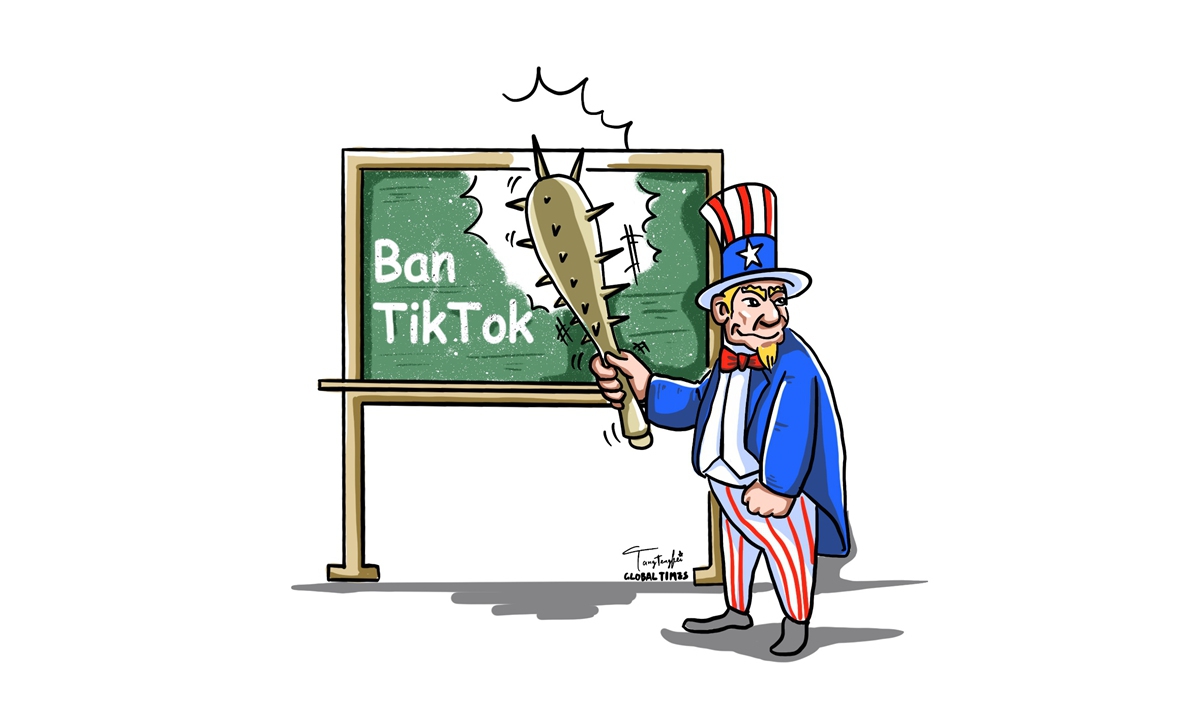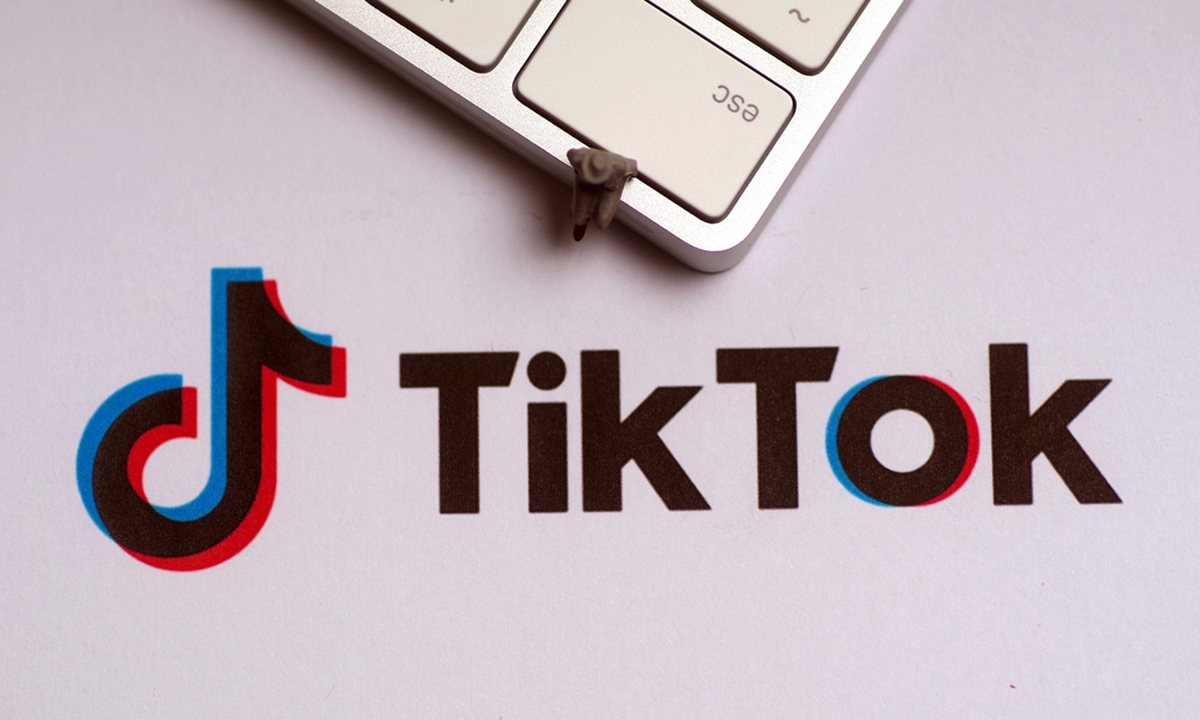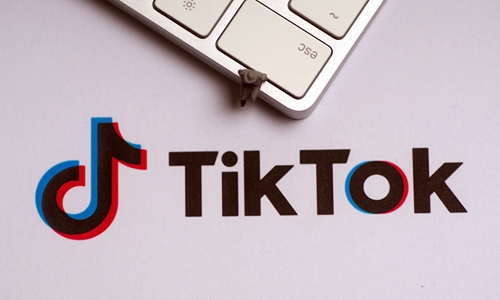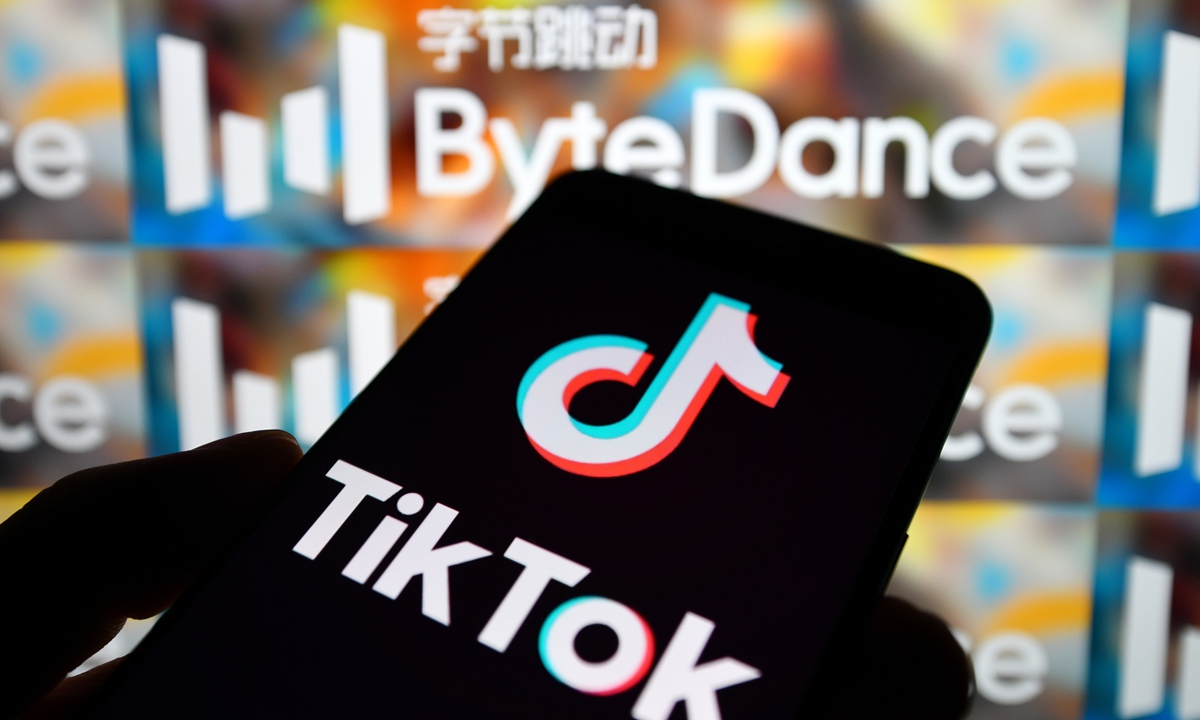
Illustration: Tang Tengfei/GT
Calls for banning TikTok have surfaced in Washington again. This time it's not about so-called data security, but about the Israeli-Palestinian conflict. But it is a confusing move, which makes people wonder whether banning TikTok will help resolve the Israeli-Palestinian conflict or cover the truth that the one-sided support of the US for Israel further fueled the tension, causing more humanitarian crisis.US lawmakers are renewing their push to ban the Chinese-owned video-sharing app in the US, arguing that the most popular content related to the Israeli-Palestinian conflict on TikTok has a pro-Palestinian slant that is undercutting support for Israel among young Americans, according to several US media reports.
A report from NBC News said that critics alleged TikTok is using its influence to push content that is pro-Palestinian and contrary to US foreign policy interests.
It is common to see TikTok become the target of criticism by US lawmakers because of its Chinese ownership, but it is uncommon to see American politicians demand that a social media platform be banned over users' popular views on a certain topic in the absence of any evidence that TikTok's algorithm is "biased." If anything, it reflects US "political correctness" when it comes to the Israeli-Palestinian conflict.
It may be true that there have been more views of TikTok posts using the hashtag #StandwithPalestine globally compared with posts using the hashtag #StandwithIsrael over the past weeks, according to Axios, citing data from TikTok's creator center. Yet, some US politicians' attempt to forcefully blame TikTok's "recommendation algorithm" for young Americans' views of the Israeli-Palestinian conflict is an apparent case of double standards involving freedom of speech, which completely misses the point of what people really care about in the conflict.
TikTok itself is an entertainment-oriented platform. Banning such a social media tool won't obscure the truth or shift the focus of the Israeli-Palestinian conflict.
The new round of Israeli-Palestinian conflict is the focus of global attention, and public discussion on major social media platforms is inevitable. Even if Western media outlets are now unanimously using "Israel-Hamas" war instead of "Israeli-Palestinian" to ensure a separation between Hamas and Palestine, there is no way to cover up the humanitarian catastrophe caused by the conflict in the Gaza Strip. In the face of the devastating scenario, young people around the world have the right to express their views.
The US is a key player in pressuring the Israeli side to halt military action, and the international community expected the US to act in concert with other parties to stop the situation from worsening. But Washington has repeatedly let people down. Instead of calming down the situation, the US has added fuel to the fire.
Accusing "recommendation algorithms" of leading to unwanted public opinion actually points to politicians' anxiety and guilty conscience over how to respond to questions about the US stance in the conflict.
The influence of interest groups in the US is so strong that Washington had to pledge unconditional support for Israel. This is the fundamental reason why Washington's political elites are facing the current political-moral dilemma. For instance, US President Joe Biden on Wednesday voiced support for a humanitarian "pause" to Israel's war in Gaza for the first time, which is considered a shift in the position of the White House, which has previously said it would not dictate how Israel conducts its military operations. But despite deepening splits on the conflict and the rising death toll in Gaza, the Biden administration cannot even openly and directly say the word "ceasefire."
It is "political correctness" that has pushed the Biden administration to adopt the wrong strategy of supporting more military operations instead of a ceasefire in the Israeli-Palestinian conflict, disregarding the possibility of the deterioration of an already serious humanitarian crisis. It is exactly such a political choice that has led to the bias against TikTok. But will banning TikTok bring a ceasefire?



